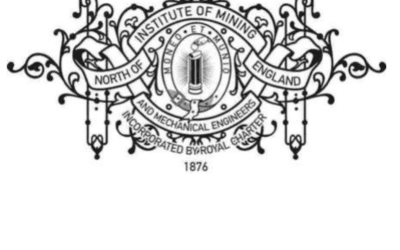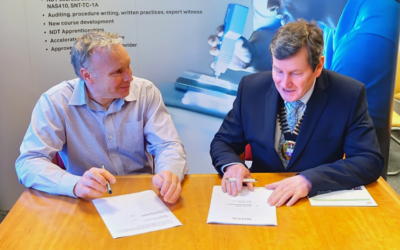The first presentation of the year was a hybrid event, at which Kenneth Wunch, discussed “Microbially Influenced Corrosion in Oil & Gas Systems.”
Kenneth holds the position of Energy Technology Fellow at Lanxess in Houston responsible for business development, technology transfer, and shaping the innovation pipeline and strategy for global oil and gas applications. He has 15 years in the industry including positions at Baker Hughes, BP and Dow, and extensive experience in development and field application of biocides, corrosion inhibitors & sulfide scavengers, and is the global Subject Matter Expert in oilfield microbiology, bioinformatics, reservoir souring, microbially influenced corrosion (MIC) and biofouling.
In his presentation, Ken gave an overview Microbially Influenced Corrosion (MIC) in oil & gas systems focusing on:
• Operations that introduce the threat of MIC
• Consequences of MIC including a case study
• MIC assessment and monitoring
Risk management for MIC relies on the application of robust preventive barriers that typically involve the physical scraping of pipelines via oilfield “pigs”, and the chemical application of biocides and corrosion inhibitors.
These preventive barriers are analogous to the control of dental caries which uses scraping via a toothbrush along with a chemical application of toothpaste to limit the microbial growth. However, the surface active and reactive biocides that are applied in oil and systems are designed to prevent or remediate corrosion in much harsher environments.
Routine monitoring for microbial growth and general corrosion is imperative for MIC risk management. However, when preventive barriers fail, Reactive Root Cause Assessments (RCA) utilise various microbial analytical techniques (ATP, qPCR, metagenomics) to identify the underlying cause, and provide corrective actions. Often, these investigations produce unexpected results. For example, a RCA performed for corrosion issues that were suspected to be MIC-related, were actually caused by oxygen intrusion into the system, with identification of oxygen-tolerant bacteria being the key piece
of evidence.
Kenneth finished his presentation by discussing key performance indicators (KPIs) and MIC management strategies, after which he answered questions from the audience.
The branch chair, Polina, thanked Ken for this very interesting and informative presentation.
Hydrotesting, drilling and completion operations in oil and gas systems introduce microbial contaminants into the topside equipment and reservoirs via numerous pathways. For example, offshore platforms can inject 10 quadrillion (1016) cells into the reservoir each day with a proportion of these able to thrive in the harsh conditions of the reservoir and production equipment.
These introduced microbes will become established and form recalcitrant biofilms that can lead to corrosion, souring (H2S production), plugging and separation issues.
Microbially influenced corrosion (MIC) is the localised interaction between microbes and metals where microbial metabolisms accelerate corrosion processes. These metabolisms influence the corrosion process and change the environment via:
• Uptake and excretion of substances that affect the solid material (chemical change)
• Creation of microenvironments (causing physical/chemical boundaries) influencing the local environment
• Deposition of scale and organic material
• Uptake and change of functional chemical addition (parasitic absorption)
It has been estimated that approximately 13% of oilfield pipeline corrosion failures can be attributed to MIC, costing the industry billions of dollars annually. For example, a 2006 pipeline failure on the North Slope of Alaska was diagnosed as due to MIC and ended up costing the operator close to $2B in fines, lost production, and equipment replacement.Furthermore, market economics of having the operations shut down increased the price of oil in the United Sates by $2 a barrel.


